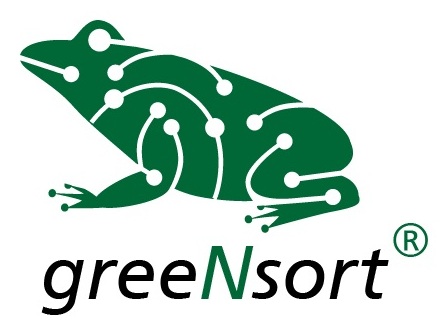Politics
The greeNsort® project is a unique risk-free, low-cost and high-impact UN SDG Action opportunity to contribute to the European Green Deal. greeNsort® could quickly deliver energy savings of up to 50 TWh/year and emission savings up to 30 MtCO2e/year.
Politics talks about climate action but acts on buzzwords and subsidizes growth, not savings, although avoiding emissions is the most economic action.
Politics talks about clean-tech
We will be a world leader in circular economy and clean technologies — Ursula von der Leyen1
talks about efficient IT
We will have to develop technologies with the Green New Deal to minimize energy consumption and improve energy efficiency […] The fight against climate change cannot be won without digital solutions — Margrethe Vestager2
even talks about sustainable software algorithms
Environmental protection must be programmed into every algorithm — Svenja Schulze3
but acts on buzzwords: AI
28 Million EUR funding for Environmental protection by AI algorithms — Svenja Schulze4
silly enough: AI is part of the problem
Machine learning generates far more carbon emissions than most people realize — HAI Stanford5
Training a single AI model can emit as much carbon as five cars in their lifetimes — MIT Technology Review6
hence politics funds even more AI
150 Million EUR funding for Sustainable AI made in Europe — Svenja Schulze7
although IT professionals warn to not ignore efficiency of all of IT
The [European] Commission should legislate specific and ambitious greenhouse gas (GHG) emission reduction requirements accompanied by suitable enforcement mechanisms for the ICT sector overall — Oliver Grau8
even the industry lobby is worried
In addition to acute crisis management, a long-term view of climate protection and strategic competitive opportunities for innovative technologies must not be lost — BDI The Voice of German Industry9
and declares to act beyond greenwashing
The clean-IT Initiative was founded in 2020 by Hasso Plattner Institute (HPI) … with a focus on Algorithmic efficiency and Sustainability by Design
For example SAP via HPI states that to reduce the energy requirements of computer systems it is necessary to:
- Raise awareness about the energy footprint of computer systems — yes, what we tell everyone (including them) since 2010
- Find feasible methods to measure the energy consumption of
computer systems and software — yes, that’s what our footprint measure
does
- Take the trade-off between performance and energy consumption into account when creating computer systems — yes, and often the other way round: better performance can reduce energy consumption
- Establish algorithmic efficiency and sustainability by design as guiding principles in digital engineering — yes, and don’t forget simplicity and robustness
- Rethink IT architectures and algorithms — yes, what we do since 2010
- Apply clean-IT solutions on a broad scale in popular services and products — yes, for example scaling them via standard libraries
however not everthing carrying the title ‘green software’ is really as green as it sounds:
The Green Software Foundation promotes a end-to-end CO2-measurement of cloud-services which rewards using greener electricity rather than measuring the efficiency of the software itself, see our comment and presentation on Software Carbon Intensity (GSF SCI).
If it’s your job to eat a frog, it’s best to do it first thing in the morning — Mark Twain
Copyright © 2010 - 2024 Dr. Jens Oehlschlägel - All rights reserved - Terms - Privacy - Impressum
